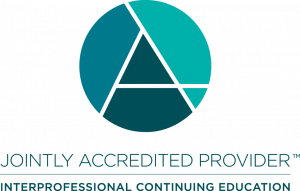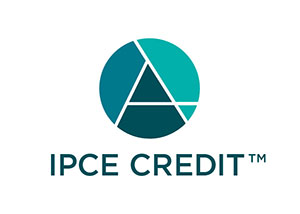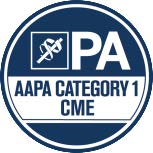Facilitator: Sherry Larkins, PhD, Director of International Programs and Research Sociologist, Integrated Substance Abuse Programs at the University of California, Los Angeles – Semel Institute for Neuroscience and Human Behavior
Cost: No fee
Target Audience: Physicians, nurse practitioners or other advanced practice nurses, PAs, psychologists, social workers, clinical administrators and healthcare teams.
Credit Designations Available: AMA PRA Category 1 Credit™, Nursing Contact Hours, AAPA Category 1 CME credit, SW CE credit, and Interprofessional Continuing Education (IPCE) credit.
Webinar Description: The strengths and barriers for each community and clinic vary, and there is no one-size-fits-all model for implementing Medications for Opioid Use Disorder (MOUD). Questions you have might have include: What models have been used to successfully scale up MOUD for OUD patients? What models have specifically been used to scale up buprenorphine treatment? How do we know which model might work best in a particular setting? This session will review these questions and highlight concrete organizational and administrative steps and processes to consider when defining your own clinic’s needs in treatment delivery. We will discuss the value of screening and how it fits into current patient flow. We will discuss the importance of developing a MOUD implementation plan that includes clinical considerations, process improvement considerations, staffing, and financial considerations.
Educational Objectives:
- Evaluate two common models of MOUD service delivery – “Nurse Care Manager” and “Hub and Spoke” – and consider appropriateness of fit
- Identify potential OUD patients using evidence-based screening tools and consider how screening can be integrated into current patient flow
- Develop an MOUD implementation plan that includes clinical, documentation/metrics, and financial considerations
Accreditation and Certification of this activity:
 In support of improving patient care, this activity has been planned and implemented by Addiction Technology Transfer Center Network and American Academy of Addiction Psychiatry. American Academy of Addiction Psychiatry is jointly accredited by the Accreditation Council for Continuing Medical Education (ACCME), the Accreditation Council for Pharmacy Education (ACPE), and the American Nurses Credentialing Center (ANCC) to provide continuing education for the healthcare team.
In support of improving patient care, this activity has been planned and implemented by Addiction Technology Transfer Center Network and American Academy of Addiction Psychiatry. American Academy of Addiction Psychiatry is jointly accredited by the Accreditation Council for Continuing Medical Education (ACCME), the Accreditation Council for Pharmacy Education (ACPE), and the American Nurses Credentialing Center (ANCC) to provide continuing education for the healthcare team.
In 2020, AAAP also added accreditation from The American Academy of PAs (AAPA), American Psychological Association (APA), Association for Social Work Boards (ASWB) and American Dental Association (ADA).
 Interprofessional Continuing Education (IPCE) Designation Statement:
Interprofessional Continuing Education (IPCE) Designation Statement:
This activity was planned by and for the healthcare team, and learners will receive 1 Interprofessional Continuing Education credits for learning and change.
Physician Designation Statement
American Academy of Addiction Psychiatry designates this enduring material for a maximum of 1 AMA PRA Category 1 Credits™. Physicians should claim only the credit commensurate with the extent of their participation in the activity.
Nursing Designation Statement
American Academy of Addiction Psychiatry is an approved provider of nursing continuing education through AAAP’s Joint Accreditation provider #4008192. This activity is approved for up to 1 Nursing Contact Hours.
 PA Designation Statement
PA Designation Statement
American Academy of Addiction Psychiatry has been authorized by the American Academy of PAs (AAPA) to award AAPA Category 1 CME credit for activities planned in accordance with AAPA CME Criteria. This activity is designated for a maximum of 1 AAPA Category 1 CME credits. PAs should only claim credit commensurate with the extent of their participation.
 Social Work Designation Statement
Social Work Designation Statement
As a Jointly Accredited Organization, American Academy of Addiction Psychiatry (AAAP) is approved to offer social work continuing education by the Association of Social Work Boards (ASWB) Approved Continuing Education (ACE) program. Organizations, not individual courses are approved under this program. State and provincial regulatory boards have the final authority to determine whether an individual course may be accepted for continuing education credit. AAAP maintains responsibility for this course. Social workers completing this course receive 1 continuing education credit.

